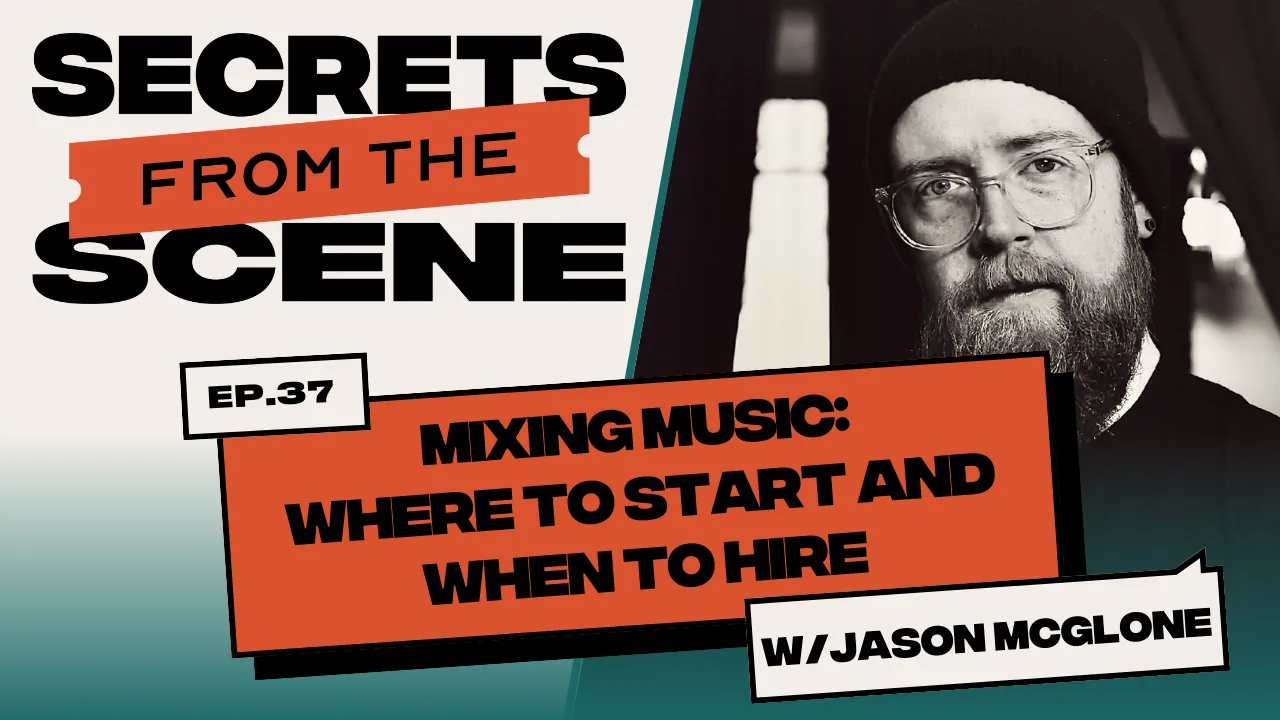Show Notes
If you've ever recorded music at home, you've likely dipped your toes into the world of mixing. Among all the stages of recording a song, mixing stands out as one of the trickiest and most complex skills to master. But for me, it's also one of the most rewarding parts of making music.
In this episode, I sit down with Jason McGlone, a talented audio professional and music professor at Hamline University. We discuss the intricacies of mixing, explore steps to take if you want to dive into this wonderful art form, and discuss when it might be time to bring in a professional.
Jason shares his thoughts on the philosophy behind mixing, highlighting the importance of organization and continuous learning. We offer essential steps for beginners eager to take on more of the recording process and emphasize why a basic understanding of acoustics and ear fatigue is crucial for accurate results. We also touch on subjects like finding balance in life to enhance creativity and improve decision-making.
Jason brings 15 years of experience as a mixing engineer and teacher to our conversation, offering invaluable advice and practical tips. Whether you're just starting out or looking to refine your skills, this episode is packed with expert guidance to help you elevate your mixing game.
watch now on YouTube:
Episode Links and Mentions
Connect with the Guest
Connect with Me
Give Feedback
📬 Send me a message: stephen@secretsfromthescene.com
💬 Suggest a guest or topic: podcast@secretsfromthescene.com
🎙️ Brought to you by:
--------------------------------
Thank You
This podcast is made possible by the hard work, expertise, and commitment of my team:
Max Greene and Joey Biehn. I'm forever grateful.
--------------------------------
Theme Music: "Thankful" Courtesy of LUEDVIG

